China has continental and seasonal climates. Most parts are within the temperate zone but the southern areas have the tropical or subtropical climates while the northern regions fall in the Frigid Zone. Climates in different regions can be complicated. For instance,
Heilongjiang Province in the north has a long winter and virtually no summer, while Hainan Island in the south enjoys summer sunshine all year long.
The following are general suggestions for tourists to consider when preparing clothing for their trips to the destinations in China with average climate conditions.
Spring: 10 to 22 degree Celsius, suits, jackets, sports jackets, woolen jackets, long sleeve shirts and walking shoes.
Summer: 22 degree Celsius and above, T-shirts, short sleeve shirts, skirts, sandals, caps, rain wears.
Autumn: 10 to 22 degree Celsius, suits, jackets, sports coats, light woolen sweaters, rain wears and travel shoes.
Winter: 10 degree Celsius or lower, overcoat, cotton clothes, lined coats. In those extremely cold areas, caps, gloves and cotton-padded shoes are highly recommended to wear.
Tourist can visit China in all four seasons as major tourist cities and attractions are located in widespread regions with different climate conditions. Determining where is the best place to go in China in terms of weather largely depends on when you wish to go in a year. Geographically China to certain extent is in resemblance of the United States.
Traveling along the so called “golden route”, i.e., Beijing, Xian, Shanghai and Guilin, is just like visiting New York, Chicago, Santa Fe and Jacksonville all in one trip.
April, May, September and October are the peak tourist months at China’s most popular destinations when the weather is the most comfortable. Costs of the trip to China drop significant during the non-peak seasons that run from November through March and from June through August. However, China’s Hainan Island is one of the hot tourist spots in winter, where you can escape from undesirable cold weathers. Harbin city in the far north, with its famous ice lantern festivals, has also attracted many tourists in the winter.
Visa Requirement for Traveling to China
According to the Law of the People's Republic of China Concerning the Administration of Foreigners Entering and Leaving the Country, foreign tourists must apply for visas at China's foreign affairs offices, consulates or other organizations authorized by the Ministry of Foreign Affairs. A group of five tourists or more can apply for a group tourist visa. This is usually handled by the travel agency that organized the group. Travelers from the countries that have visa agreements with China will be treated in accordance with the agreements. If you plan to visit Tibet, you can apply for a visa only with a permit issued by the Tourism Administration of the Tibet Autonomous Region or any one of its foreign representative offices.
A passport is required for visa application; the passport shall be valid for at least 6 months beyond the duration of the tour.
Visa is required for all Canadians, Americans and the citizens of most other nationalities when traveling to China. You can apply for the Chinese visa directly at the Chinese Embassies and Consulate Generals around the world.
For Canadian and US passport holders as well as the traveler for most of the European countries, visa is not required for entering Hong Kong if the stay is less than ninety days. For traveler from other countries or regions, please consult with your nearest PRC embassy or consulate.
How to make phone calls in China
Inside most towns and cities in China, IDD services are usually provided at all hotels and post offices. Phone cards are available in post offices inside hotels or on the streets. More conveniently, most newsstands in major cities also carry phone cards. Telephone booths on the streets or in the public areas are mostly for making local calls.
If you plan to stay in China for an extended period of time and need to use telephone rather frequently, it is recommended to purchase a local cellular phone with a rechargeable SIMM card. Although the cellular phone that you use at home most likely can be used in China, the international roaming services are extremely expensive, ranging between USD two to three dollars per minute depending on the service provider. It is very easy to buy a cellular phone; setting up the mobile services only takes couple minutes. There are various low rate international calling cards available for using with the Chinese cellular phones. Talk to an attendant at the hotel you are staying, they will be able to direct you to a right place where you can buy a cellular phone and have the local cellular services set up.
Most tourist hotels provide postal services. If you want to send important items such as antiques and cultural relics that are under customs control, you will have to ask for the help of the local branch of the international post office, instead of the small post office in a hotel.
Important phone numbers in China 110--Police 112--Inner-city telephone mishaps 113--Operator of domestic long-distance calls 114--Inner-city telephone number inquiries 115--Operator of international long-distance calls 116--Information on domestic long-distance calls 117--Time 119--Fire 120--Ambulance 121--Weather forecasts
Dining Tips for Traveling in China
About Chinese Food
Dining might be an important part of the journey for some tourists. There are abundant delicious foods and drinks in China that may give you artistic impressions. Chinese cuisines have gained high reputations worldwide and in part represent the magnificent Chinese culture evolved during nearly five thousand year long glorious history. The staple foods in China are rice and wheat. Millet, corn, buckwheat, potato, sweet potato and many other types of legumes are also common. Apart from rice, wheaten food like steamed bread, noodles, deep-fried twisted dough sticks, steamed stuffed buns, as well as various gruels, cakes and snacks with special local flavors always make the dining table rich and colorful.
China is a big country with a vast territory abounding in natural resources. In different regions of China, people's life styles, custom, economic situations and cultural backgrounds all vary. The diversified focal flavors along with different but equally superb cooking techniques have formed eight famous yet traditional Chinese Cuisines, namely Shandong, Sichuan, Guangdong, Jiangsu, Zhejiang, Fujian, Hunan and Anhui, each of which has its own features.
You can enjoy the delicious Chinese food not only in superior restaurants with well appointed facilities and quality service, but also in ordinary eateries that are much more cost effective but still serve delicious food. Many appetizing local snacks are sold at the roadside eateries, night markets or street restaurants that can be easily found in China. Costs of dining vary significantly, all depending on where you are going. However, no matter where you go for dining, you must pay special attentions to the aspects of health, sanitation and safety.
Western style foods can be found easily in the major cities of China. Most tourist hotels also have restaurants serving the western food. In addition, various fast-food outlets like McDonald's, KFC and Pizza Hut, which is very popular among Chinese people, could help the tourists who can not get used to the Chinese food.
Dining situations in remote areas can be quite different and may not as desirable as in large cities. Especially in the regions where the minority ethnic groups are residing, there are not many dining choices other than what represent their local eating habits. So you may want to get prepared before traveling to those regions.
The drinking water situation in China is different from that in most western countries. Tap water in China is undrinkable. However, there are several approaches that you can gain access to safe and healthy drinking water. You can use water heater or coffee maker to get water boiled before drinking. Almost all of the tourist hotels now provide in-room water heaters or coffee makers. You may get drinkable water from water dispensers that can be located in many offices, reception rooms and other public areas. The safest way to access the drinking water is to buy spring water from a nearby supermarket. Spring water does not cost too much at supermarkets, typically ranging between one to three yuan. The most reputable spring water brands include Wahaha, Nestle and Nongfu Mountain Spring. Some imported name brand spring water is also available in many supermarkets.
Eat Healthy in China
Many foods can not be eaten together as they will reduce the microelements needed by your internal secretion and the absorption of vitamin C. For example, copper is an important element necessary for absorptions of calcium, iron and fat metabolism. The meats and vegetables that contain abundant copper include liver, spinach and fish. Mixing them with any Kom-rich food such as tomatoes and green beans will significantly reduce extractions of the copper.
Eat what is easy to swallow Consumption of beef and white spirits is likely to cause inflammation
Avoid food combinations that affect calcium absorption Calcium is a major component of teeth and bones. Most milks and Hapi contain lots of calcium. They are not recommended to be consumed with any foods that are rich in oxalic acid, such as soybeans, spinach and Chinese chives.
Do not eat shallots with tofu Stir fried shallot and tofu one was a traditional and tasty dish in China, especially in summer. However, this mixture has been proven to be problematic, because tofu contains rich calcium, and shallot contains a significant amount of oxalic acid. Once two elements are mixed, a special type of chemical will be formed to affect absorptions of the calcium.
Avoid mixing fresh mutton with vinegar Fresh mutton is excellent for vital energy and will cure some deficiencies while vinegar contains protein, sugar, vitamins and acetic acid. However, if those two items are mixed together, the useful functions of both will be lost.
Caution, wine may affect the absorption of vitamins Any drinks containing alcohol will interfere with the body's absorption of various vitamins. Therefore, drinking alcoholic beverages is recommended when your body is in need of additional vitamins. On the other hand, do not drink wine or liquor while taking vitamin supplements.
About Chinese Language
Chinese, also being called Mandarin, is the language used by Han people, the majority ethnic group in China. It is also the official language of China. Over billion people, or ninety percent of China’s total population, speak Mandarin. Other than Mandarin, a number of regional languages such as Tibetan, Mongolian, Lolo, Miao and Tai, are spoken by people from the ethnic minority groups in China.
Chinese or Mandarin belongs to the family of Sino-Tibetan languages. Besides core differences in vocabularies and pronunciations, Chinese has several unique features that distinguish itself from most Western languages: it is monosyllabic; it has very little inflection; and it is tonal. In order to differentiate meanings between the words that are similar in pronunciation, a tonal language assigns to its words a distinctive pitch, high or low, rising or falling.
Oral Chinese has many regional variants, referring to different dialects. As a matter of fact, Mandarin is the official and most popular dialect of Chinese. Many call it “standard Chinese”. Most people in China can at lease understand Mandarin. On the other hand, most Chinese dialects are mutually intelligible.
In as early as the 17th century, the Imperial government of the Qing Dynasty had seen the necessity of establishing an official national language. So it set up a series of language institutes teaching and promoting standard Peking pronunciation, particularly in the Cantonese and Fukienese-speaking southern provinces. But their efforts somehow failed.
The concept of a national language was actually introduced in 1913, when then Ministry of Education convened the Commission for Pronunciation Unification to establish a set of Chinese language pronunciation standards.

After several attempts of using the roman alphabetic letters to spell out the written Chinese, a 58-symbol writing system was finally adopted in 1958. The main purpose of introducing such a system was to promote the standardization of the Chinese language and to facilitate the learning of Chinese characters.
In the present time, a simplified writing system is being used in mainland China, whereas in Hong Kong, Taiwan and the overseas regions, the traditional Chinese scripts still dominate. The simplified writing system differs in two ways from the traditional writing system: a reduction in number of the strokes per character; and a decrease in character sets for common use.

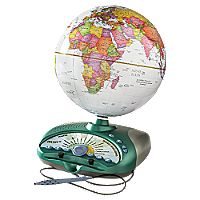
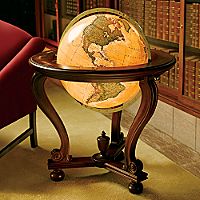
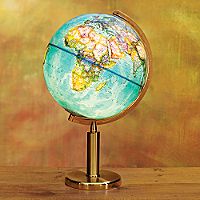
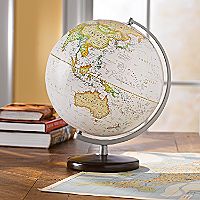
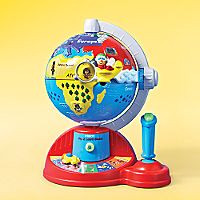
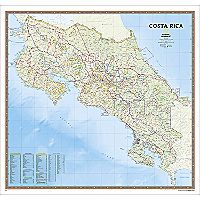
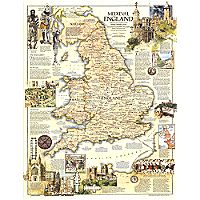
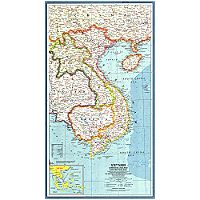
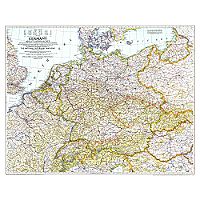
No comments:
Post a Comment